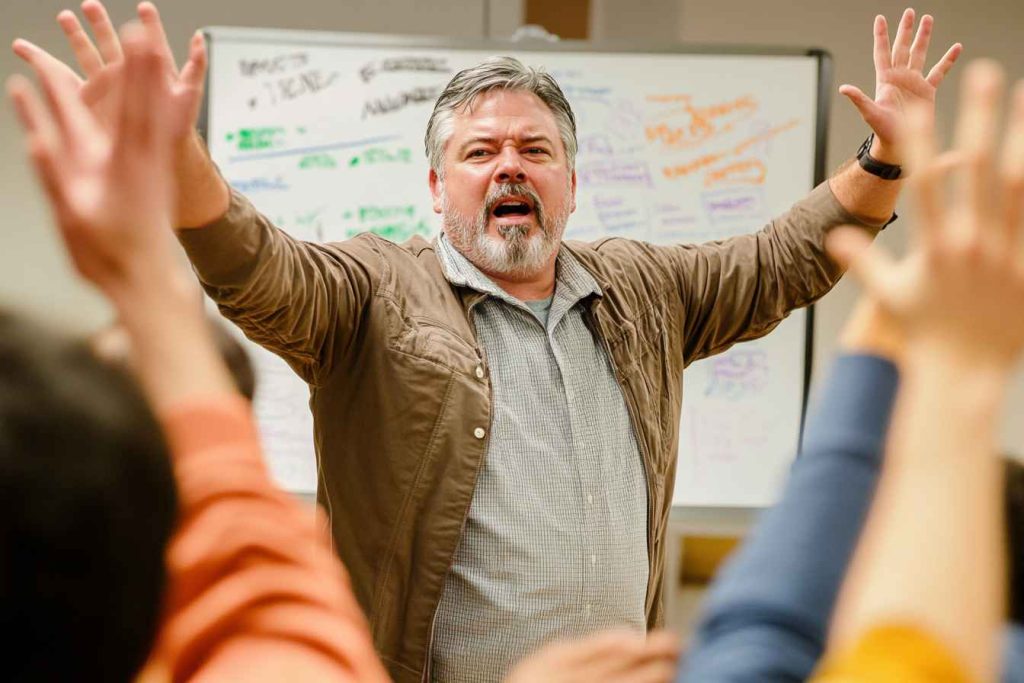Let’s be real—conflict at work is inevitable. Whether it’s a disagreement over strategy, a clash in communication styles, or a misunderstanding in responsibilities, tension happens. But here’s the thing: how you handle conflict is what sets top performers apart from everyone else.
This guide is your deep dive into conflict resolution skills in the workplace—what they are, why they matter, how to build them, and how to evaluate them in candidates or teams.
If you’re a manager, team lead, or recruiter, you’ll walk away with strategies you can implement today.
What Are Conflict Resolution Skills?
Conflict resolution skills are the tools, behaviors, and techniques people use to navigate disagreements and restore collaboration in a professional setting.
We’re not just talking about “keeping the peace.” We’re talking about:
- Listening actively
- Managing emotions
- Problem-solving collaboratively
- Addressing issues directly
- Creating win-win outcomes
These skills matter whether you’re a junior associate or a CEO.
🚨 Why Conflict Resolution Matters in the Workplace

Still wondering if it’s worth investing in? Let’s break it down:
| Benefit | Impact on Business |
| Improves team collaboration | Less tension, more innovation |
| Reduces turnover | Employees stay when issues are handled well |
| Boosts productivity | Less time spent on drama, more on goals |
| Protects company culture | Healthy conflict strengthens team trust |
| Enhances leadership impact | Strong leaders handle issues head-on |
When you build conflict resolution into your team’s skill set, you build resilient, adaptable teams that thrive under pressure.
🛠️ Core Conflict Resolution Skills to Develop

Here are the most essential conflict resolution skills every professional should master:
| Skill | Why It’s Important |
| Active Listening | Understand others fully before reacting |
| Empathy | Reduces defensiveness and builds trust |
| Clear Communication | Prevents misunderstandings before they grow |
| Emotional Regulation | Keeps situations calm and professional |
| Problem-Solving | Focuses on solutions, not blame |
| Assertiveness | Helps express needs without being aggressive |
| Adaptability | Adjusts approach based on the context or person |
Want real-life examples of how these play out?
👉 Conflict Resolution Skills Examples
🎯 Conflict Resolution Strategies That Actually Work
No two workplace conflicts are the same—but these strategies apply in nearly every case:
1. Address the issue early
Avoiding conflict doesn’t solve it—it usually makes it worse. Address it while it’s still manageable.
2. Use “I” statements
Say: “I feel frustrated when deadlines aren’t met” instead of “You never meet deadlines.”
3. Focus on the problem, not the person
Stay solution-oriented. Don’t make it personal—make it productive.
4. Seek common ground
Find what both parties agree on. That’s your starting point for compromise.
5. Bring in a mediator when needed
Sometimes, an objective third party (like HR or a team lead) is key to resolving deep-rooted issues.
🧪 How to Measure Conflict Resolution Skills
If you’re hiring or evaluating internal team members, you need ways to assess these skills in action.
✅ Use role-play or situational judgement exercises
✅ Observe behavior in team projects or meetings
✅ Ask focused questions in interviews
Need help with measurement techniques?
👉 How to Measure Conflict Resolution Skills
🎤 Interviewing for Conflict Resolution Skills

Here are a few questions you can use in interviews to assess how candidates handle conflict:
| Question | What to Look For |
| “Tell me about a time you had a disagreement with a coworker.” | Do they stay calm, listen, and collaborate? |
| “How do you handle working with someone who challenges your ideas?” | Look for open-mindedness and respect |
| “Describe a workplace conflict you resolved successfully.” | Listen for ownership, empathy, and solution focus |
Get more sample questions and answers here:
👉 Conflict Resolution Interview Questions and Answers
📈 How to Build a Conflict-Resilient Culture
Whether you’re a team lead or a founder, you can bake conflict resolution into your company DNA:
- Provide training and roleplay scenarios
- Reward collaborative problem-solving
- Make feedback part of your weekly process
- Lead by example—don’t avoid conflict, model resolution
- Celebrate tough conversations that ended with growth
❓Frequently Asked Questions (FAQ)
1. What are the most important conflict resolution skills in the workplace?
Great question! The top skills include active listening, clear communication, empathy, emotional regulation, and problem-solving. These help you manage disagreements without drama and find solutions that actually stick.
2. Why is conflict resolution important at work?
Because unresolved tension can tank productivity, team morale, and even lead to turnover. Strong conflict resolution keeps teams aligned, communication open, and collaboration smooth—even when disagreements pop up (which they always do!).
3. How can I tell if someone has good conflict resolution skills?
Watch how they handle pressure or disagreements. Do they stay calm, listen carefully, and work toward a solution? In interviews, ask them to share real-life examples—like how they resolved a conflict with a colleague or manager.
👉 Check out sample questions here
4. Can conflict resolution skills be taught or improved?
Absolutely! These are learnable skills. With a bit of self-awareness and the right practice—like roleplays, feedback sessions, or coaching—anyone can get better at handling tough conversations.
5. What’s the best way to resolve conflict between two employees?
Start by bringing them together for a neutral, structured conversation. Encourage active listening and ask both to focus on solutions, not blame. If needed, involve a third party (like HR or a team lead) to mediate.
6. How do you measure conflict resolution skills during hiring?
Use a mix of:
- Behavioral interview questions
- Roleplay scenarios
- Team-based tasks during trial projects
You can also look at how candidates handle feedback and ambiguity—those moments often reveal more than polished answers.
7. What’s a real example of conflict resolution in the workplace?
Imagine two team members disagree on how to prioritize a project. Instead of escalating, one invites the other for a short meeting, listens without interrupting, and proposes a shared plan that addresses both concerns. Result? Conflict resolved, deadlines met, trust strengthened.
👉 See more real-world examples
Final Thoughts
Conflict in the workplace isn’t something to fear. It’s something to manage skillfully.
Whether you’re coaching your team or interviewing your next hire, conflict resolution is a core competency that determines long-term success.
When you treat conflict as a growth opportunity—not a threat—you build a workplace that’s more connected, productive, and human.
Want to go deeper?



어제 친구들과 회식 자리로강남가라오케추천다녀왔는데, 분위기도 좋고 시설도 깨끗해서 추천할 만했어요.
요즘 회식 장소 찾는 분들 많던데, 저는 지난주에강남가라오케추천코스로 엘리트 가라오케 다녀와봤습니다.
분위기 있는 술자리 찾을 땐 역시강남하퍼추천확인하고 예약하면 실패가 없더라고요.
회사 동료들이랑강남엘리트가라오케방문했는데, VIP룸 덕분에 프라이빗하게 즐길 수 있었어요.
신논현역 근처에서 찾다가강남룸살롱를 예약했는데, 접근성이 좋아서 만족했습니다.
술자리도 좋지만 요즘은강남셔츠룸가라오케이라고 불릴 만큼 서비스가 좋은 곳이 많더군요.